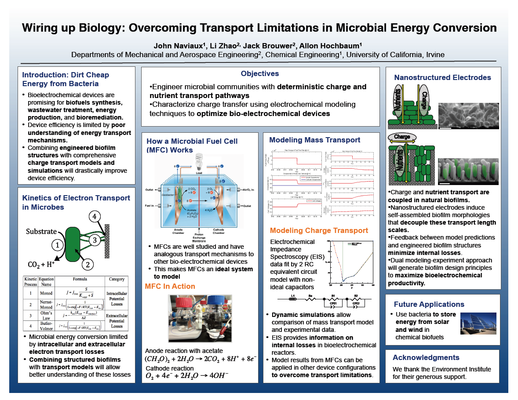Wiring up biology: overcoming transport limitations in microbial energy production
Biological electrochemical reactions are ubiquitous in nature and inspire promising avenues of biogenic energy research, but a poor understanding of the physical charge transport mechanisms limits their efficiency and application. In a fuel cell configuration of a bioelectrochemical system, an electrode-associated microbial community generates power as a result of the metabolic oxidation of organic matter. In the reverse configuration, electricity from intermittent alternative energy sources, such as wind and sunlight, electricity is fed to bacteria instead of organic matter to stimulate the production of chemical fuels. Both schemes hinge on similar convoluted and poorly understood charge transfer mechanisms at the bio‐inorganic interface. Capitalizing on expertise in microbiology and microfabrication in the Hochbaum lab, and fuel cell characterization and modeling in the Brouwer lab, we propose to construct, characterize, and optimize bioelectrochemical devices for power generation and sustainable biosyntheses of fuels.

